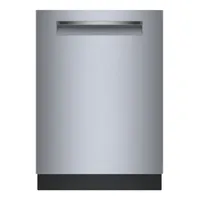7 signs your dishwasher needs replacing — with tips from appliance experts
Experts reveal 7 signs to look out for
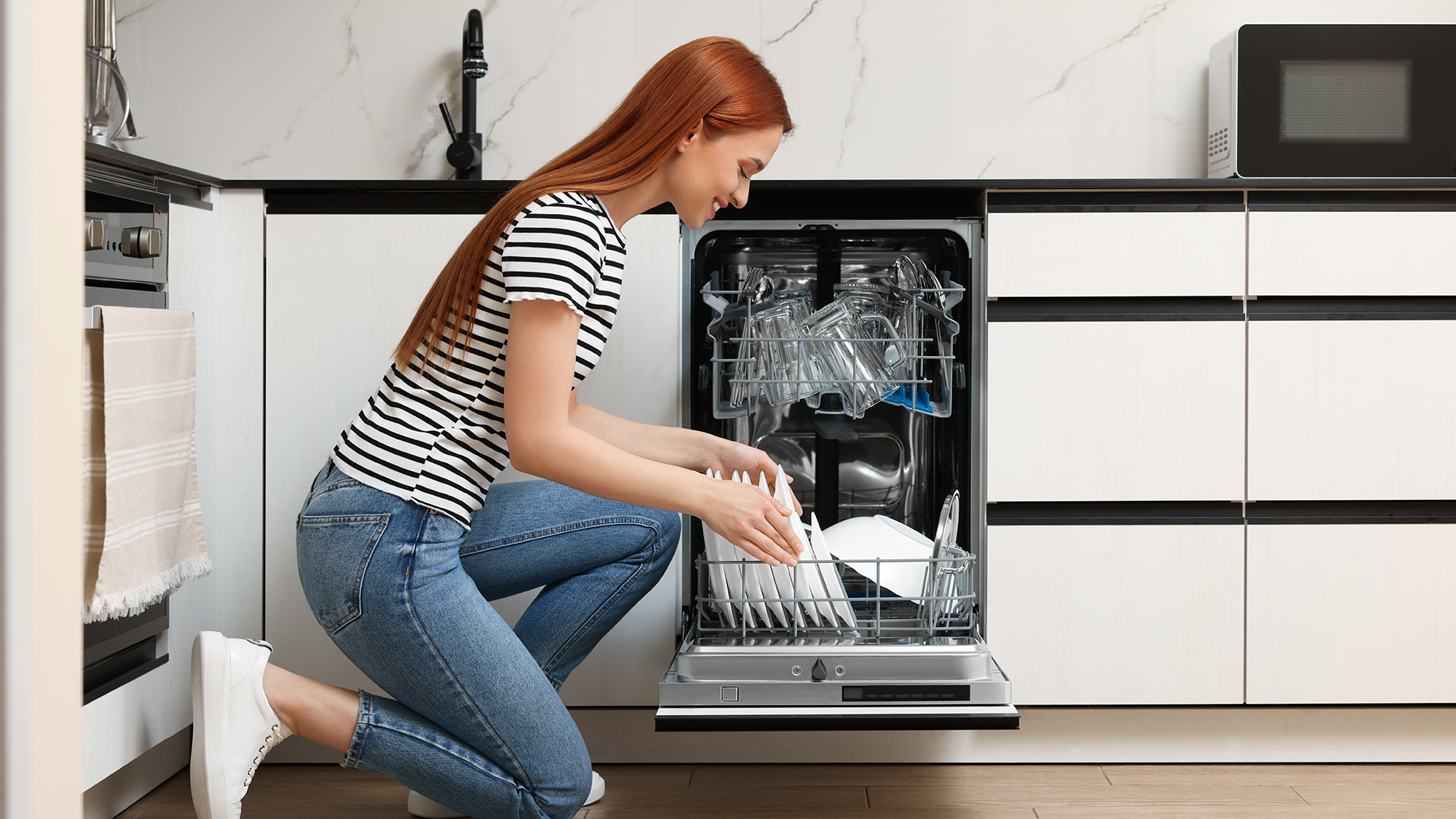
I couldn’t be without one of the best dishwashers, mine gets used nearly as much as my washing machine, as I set it to run every night.
Although I don’t have nightmares about my dishwasher breaking down, I’d prefer not to have to wash up stacks of pots and pans by hand. So, rather than being taken unawares and having a dishwasher that suddenly stops in its tracks, I’d prefer to know the signs that my dishwasher needs replacing.
With this in mind, I’ve called in appliance experts to share their advice on the top signs that indicate your dishwasher needs a troubleshooting repair or replacing.
1. Water leaks

A water leak doesn’t always mean you have to replace your dishwasher immediately, but it will need to be investigated. “In most cases, leaks are caused by a worn-out rubber seal around the door or a loose or clogged drain hose,” says Jimmy Hiller, CEO and president of Happy Hiller.
Amy Chernoff, vice president of marketing at AJ Madison adds that in more serious cases, the water leak is caused by a damaged tub or faulty pump housing, and says, “While minor leaks can be repaired, recurring leaks or visible warping inside the cabinet often indicate structural wear.”
In this situation, it’s time to replace a part. Lee Gilbert, founder and appliance maintenance expert at Ransome Spares, advises, “If an electrical component has been leaking, it is always recommended that the complete component is replaced for safety reasons.”
Noises during the wash cycle
I’ve certainly become noisier as I age; my joints and bones creak a little more with each passing year, and it can be a similar story for your dishwasher.
Get instant access to breaking news, the hottest reviews, great deals and helpful tips.
“Noises from the dishwasher during the wash cycle can manifest as the dishwasher ages,” says Gilbert. “Wear and tear on electromechanical components such as the wash motor and pump are the most likely causes and are a sign that the dishwasher might be coming to the end of its life.”
Chernoff advises you to listen out for excessive or unusual noise and says, “Grinding, knocking, or loud humming is often due to failing motors, debris in the impeller, or loose components. While some sound is expected in older machines, modern models now operate as low as 38–44 dBA.”
3. The water fails to heat
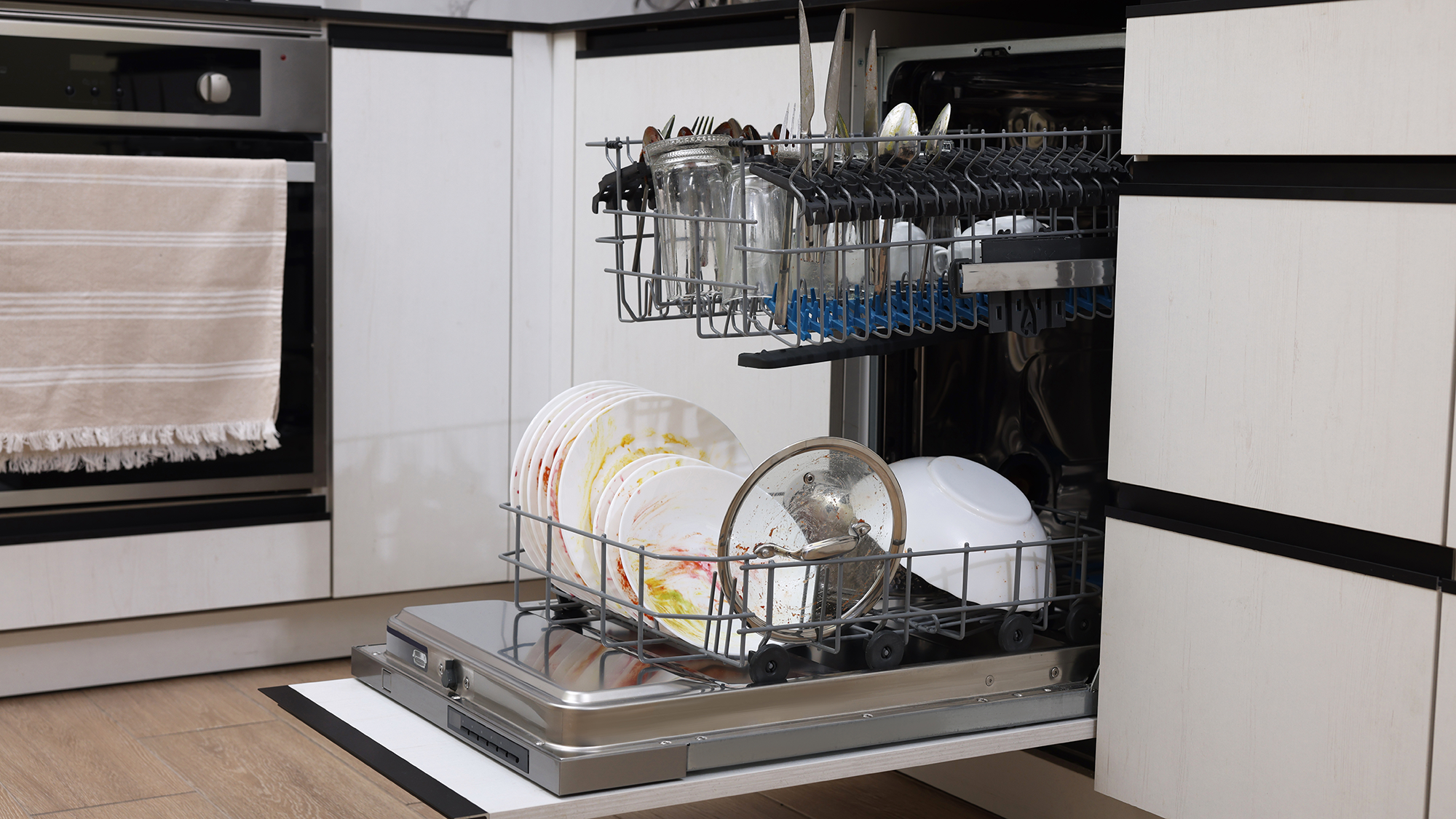
If you notice that your dishes aren’t as clean as you’d expect, Gilbert says it could be due to a heating element failing. And he mentions it’s likely to occur only after your dishwasher has performed many cycles.
Chernoff explains, “Dishwashers typically rely on built-in heating elements to reach optimal wash temperatures of 120°F–160°F,” and says apart from an issue with the element, there could be a problem with the thermistor sensor if your dishes are coming out cool or greasy.
4. Water doesn’t drain properly
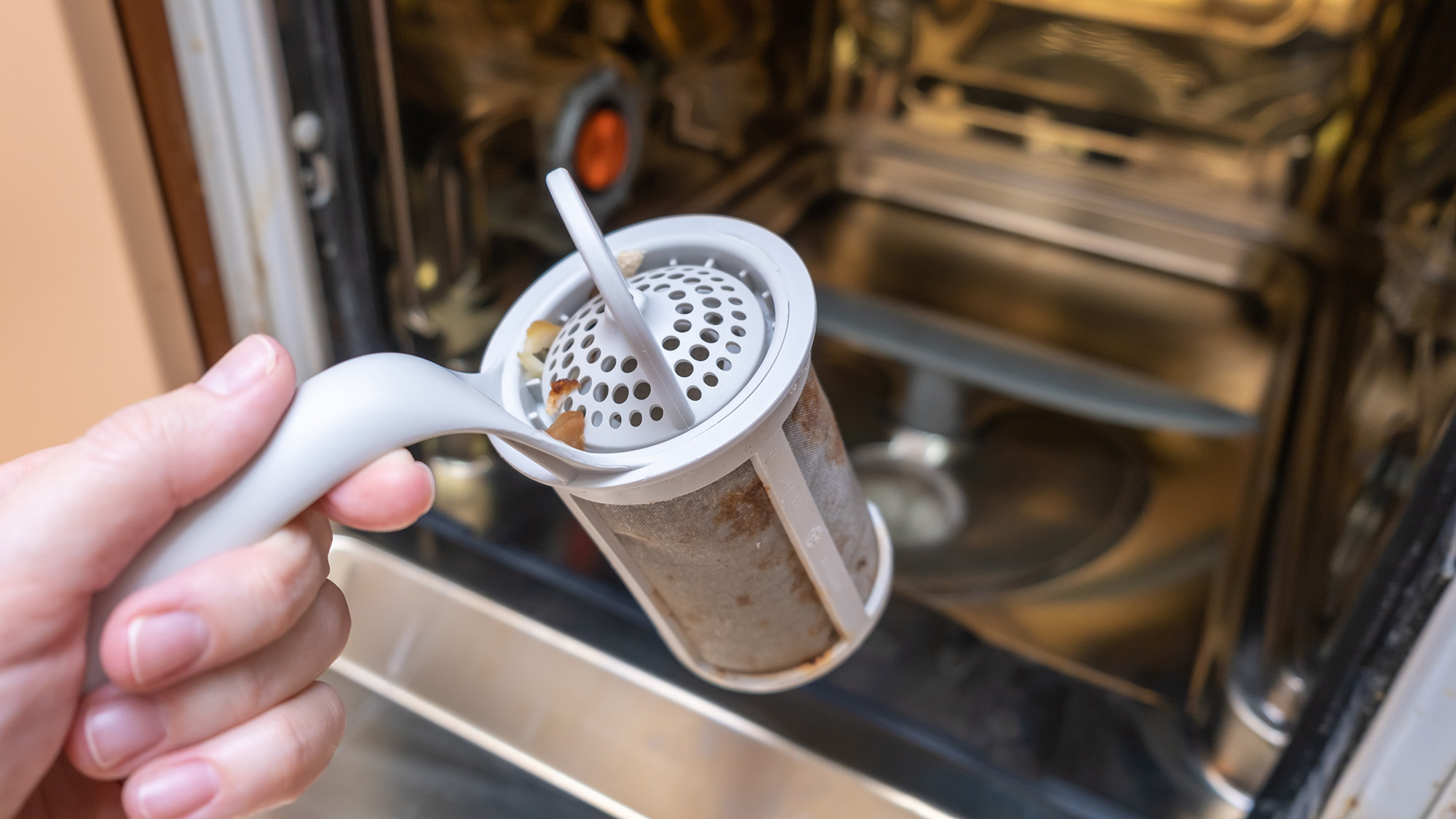
When you open your dishwasher and spot a pool of water in the bottom of the tub, it’s a sign that the water isn’t draining properly. “The likely culprits are a blocked filter, a kinked drain hose, or a failing drain pump,” says Chernoff.
Hiller says that if you’ve cleaned the filter, checked the drain hose and garbage disposal, and run an empty cycle with a cup of vinegar, but there’s still standing water, the issue is probably the drain, which can be an expensive part to repair.
Chernoff adds that if you suspect the drainage pump is at fault, it’s worth considering a new dishwasher with self-cleaning filters.
This Bosch dishwasher delivers across the board, it's quiet to run, has a generous capacity with 16 place settings, and an adjustable third rack. Plus, this Bosch dishwasher is Energy Star certified and you could claim a rebate from your local utility company.
5. The drying cycle isn't working
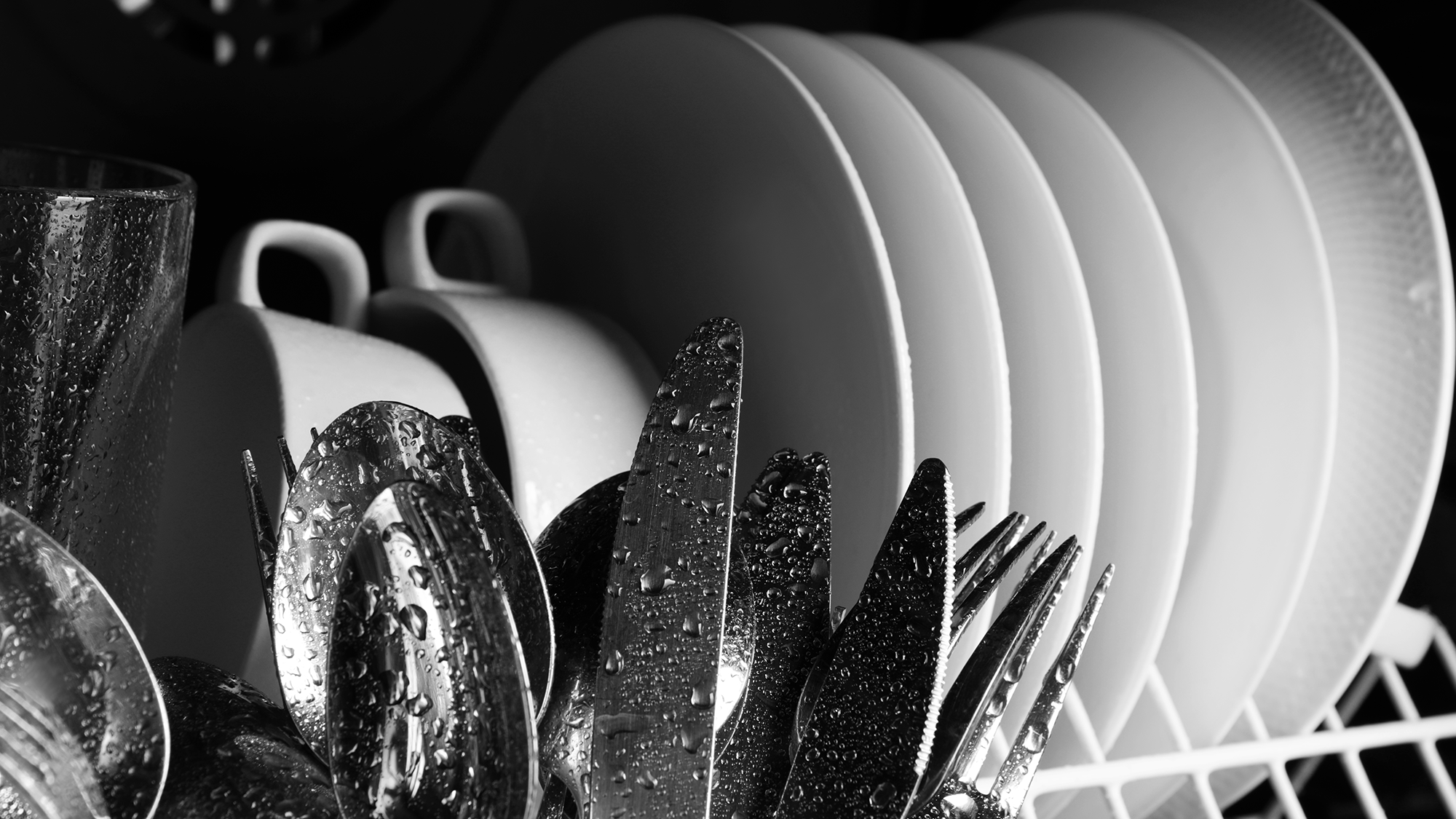
A dishwasher doesn’t just clean your dishes; it dries them too, but sometimes you might find your dishes are still wet once the cycle has completed.
“Poor drying performance may be due to a faulty heating element, fan, or vent system,” says Chernoff, and she adds, “If plasticware comes out dripping or there’s excess condensation inside, your current dishwasher may not have active drying, or it’s no longer functioning properly.”
Although Hiller advises checking the program you’ve selected before getting too concerned, “Remember that the dishwasher won’t dry your dishes if you have “eco” or “air dry” modes on.”
Alternatively, Hiller mentions that a rinse aid can help, “A lot of people don’t realize rinse aid plays a big role in how well your dishwasher dries dishes, especially in areas with hard water. However, if your dishes are still wet after a normal cycle and you use a rinse aid, a faulty heating element is likely the cause, and you need to replace it — not your dishwasher."
However, if you decide to replace your dishwasher, Chernoff advises looking for an appliance with advanced drying technologies, and suggests selecting a Bosch dishwasher with CrystalDry™ or a Miele appliance with AutoOpen Drying.
6. Visual signs of rust
If you spot rust on your dishwasher tub, it’s a red flag. According to Chernoff, it’s often caused by worn rack coatings or compromised stainless steel integrity.
“If the rust is only on the dish racks, you can use a rack repair kit to seal the spots and keep using the dishwasher,” says Hiller, “But if you see rust on the stainless steel tub or internal components like the heating element or pump, that means the interior is corroding, and in that case, replacing the dishwasher is often the better option.”
To prevent the problem from occurring in the future, Chernoff recommends selecting a dishwasher with a corrosion-resistant stainless steel interior.
7. Dishes coming out dirty
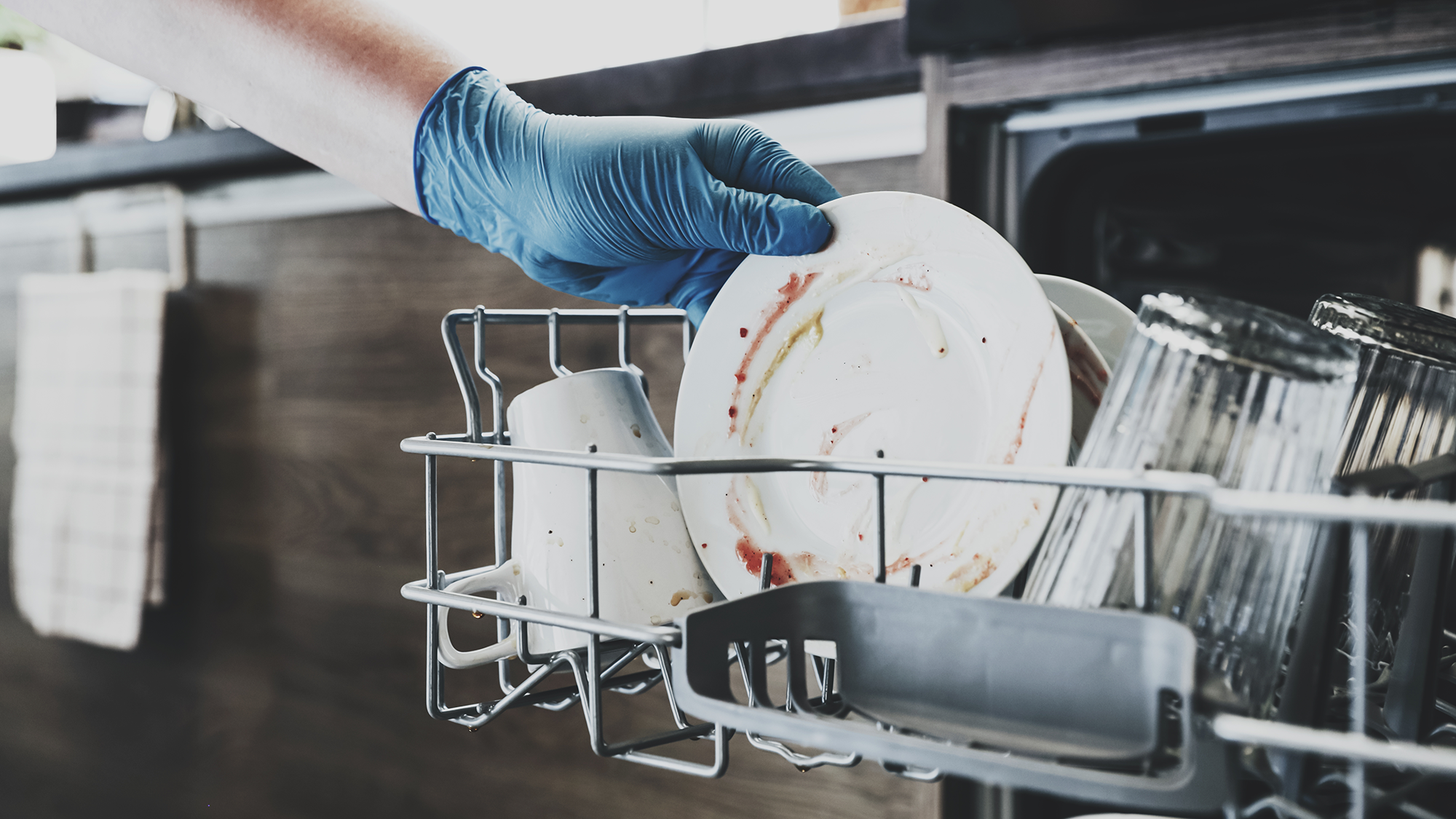
Sometimes, you may find that your dishes are coming out dirty, even when you know the water temperature is hot enough and you're using the best dishwasher detergent. “If your dishes consistently come out grimy, foggy, or with food residue — even after running a cleaning cycle with proper loading and detergent — it may signal worn-out spray arms, a malfunctioning motor, or declining water pressure. Sometimes a deep clean or filter check helps, but if performance remains poor, it could be time for a replacement,” says Chernoff.
You might also be interested in there’s one common kitchen item you should never put in a dishwasher — here’s why.
More from Tom's Guide
- Discover how to deep clean a dishwasher — with top tips from a cleaning expert
- And how often should you clean your dishwasher — experts reveal all you need to know
- Plus, 7 ways to improve your dishwasher's performance

Camilla is the Homes Staff Writer and covers everything to do with homes and gardens. She has a wealth of editorial experience, mounting over 30 years, and covers news and features, tests products for reviews and compiles buying guides.
Her work has appeared in business and consumer titles, including Ideal Home, Real Homes, House Beautiful, Homebuilding & Renovation, and Kitchen & Bathroom Business. She’s even appeared on the cover of Your Home, writing about her own house renovation.
Although she’s obsessed with decorating her home, she also enjoys baking and trying out the latest kitchen appliances. But when she’s not inside, you’ll find her pottering about in her yard, tending to her vegetable patch or taking in her prized hydrangeas.
You must confirm your public display name before commenting
Please logout and then login again, you will then be prompted to enter your display name.
 Club Benefits
Club Benefits





